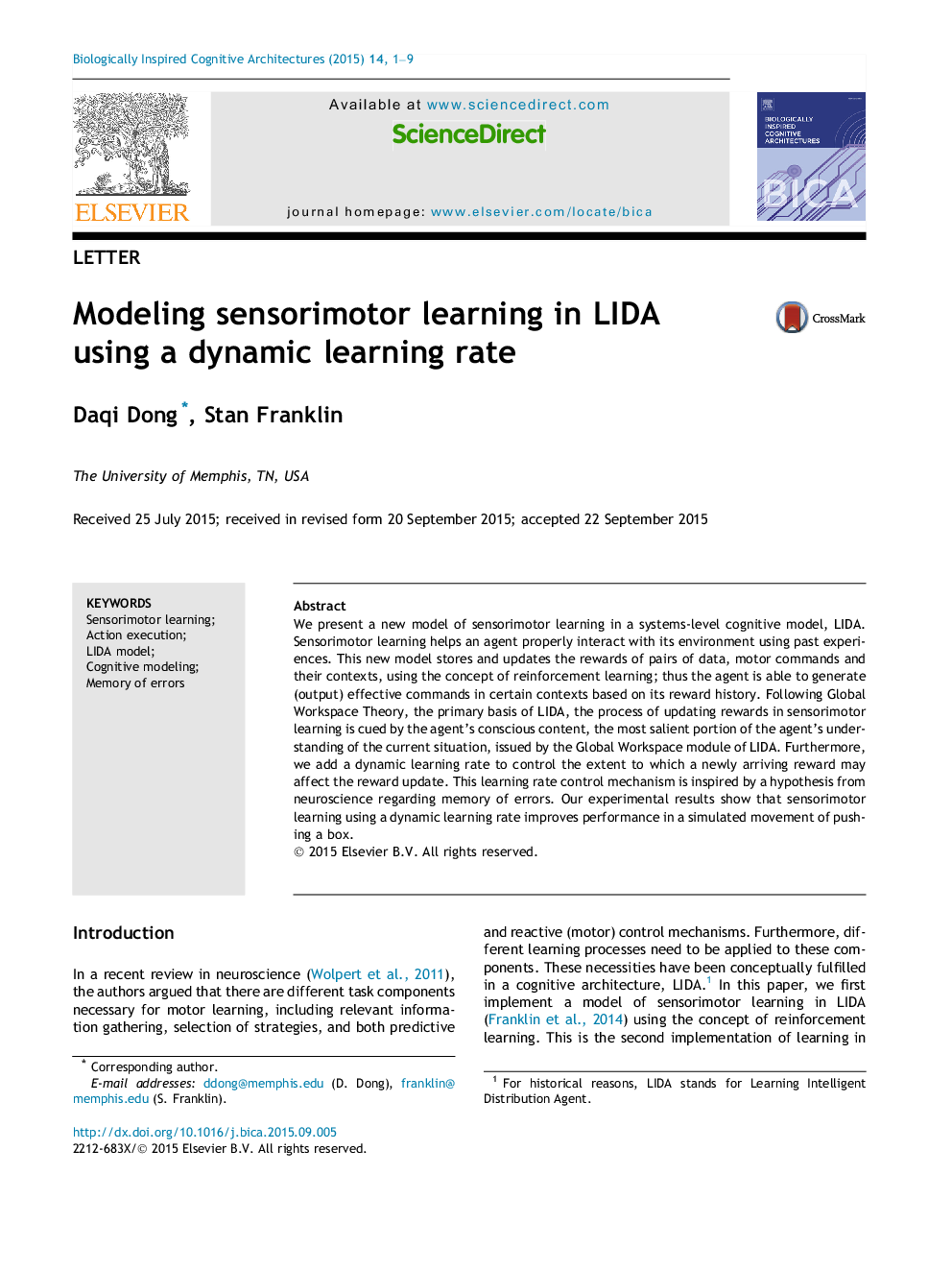| کد مقاله | کد نشریه | سال انتشار | مقاله انگلیسی | نسخه تمام متن |
|---|---|---|---|---|
| 378244 | 659008 | 2015 | 9 صفحه PDF | دانلود رایگان |

We present a new model of sensorimotor learning in a systems-level cognitive model, LIDA. Sensorimotor learning helps an agent properly interact with its environment using past experiences. This new model stores and updates the rewards of pairs of data, motor commands and their contexts, using the concept of reinforcement learning; thus the agent is able to generate (output) effective commands in certain contexts based on its reward history. Following Global Workspace Theory, the primary basis of LIDA, the process of updating rewards in sensorimotor learning is cued by the agent’s conscious content, the most salient portion of the agent’s understanding of the current situation, issued by the Global Workspace module of LIDA. Furthermore, we add a dynamic learning rate to control the extent to which a newly arriving reward may affect the reward update. This learning rate control mechanism is inspired by a hypothesis from neuroscience regarding memory of errors. Our experimental results show that sensorimotor learning using a dynamic learning rate improves performance in a simulated movement of pushing a box.
Journal: Biologically Inspired Cognitive Architectures - Volume 14, October 2015, Pages 1–9